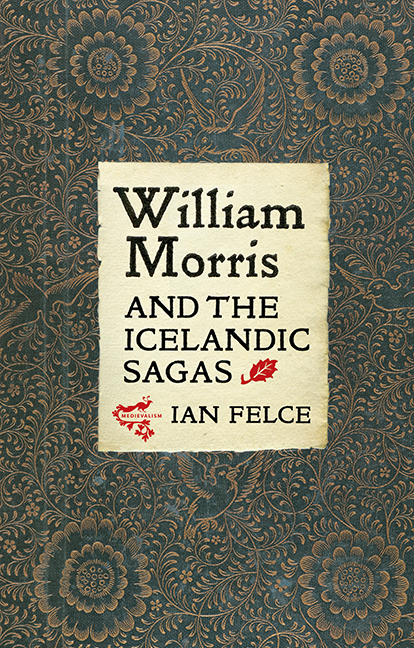Book contents
- Frontmatter
- Dedication
- Contents
- Acknowledgements
- Author's Note
- List of Abbreviations
- Introduction
- 1 ‘The Lovers of Gudrun’ and the Crisis of the Grail Quest
- 2 The Sagas of Icelanders and the Transmutation of Shame
- 3 Grettir the Strong and the Courage of Incapacity
- 4 Heimskringla, Literalness and the Power of Craft
- 5 Sigurd the Volsung and the Fulfilment of the Deedful Measure
- 6 The Unnameable Glory and the Fictional World
- Conclusion
- Bibliography
- Index
- Miscellaneous Endmatter
2 - The Sagas of Icelanders and the Transmutation of Shame
Published online by Cambridge University Press: 17 July 2019
- Frontmatter
- Dedication
- Contents
- Acknowledgements
- Author's Note
- List of Abbreviations
- Introduction
- 1 ‘The Lovers of Gudrun’ and the Crisis of the Grail Quest
- 2 The Sagas of Icelanders and the Transmutation of Shame
- 3 Grettir the Strong and the Courage of Incapacity
- 4 Heimskringla, Literalness and the Power of Craft
- 5 Sigurd the Volsung and the Fulfilment of the Deedful Measure
- 6 The Unnameable Glory and the Fictional World
- Conclusion
- Bibliography
- Index
- Miscellaneous Endmatter
Summary
SCHOLARS WHO HAVE considered the importance of the Icelandic sagas to Morris have frequently acknowledged that his engagement with Old Norse literature was connected to a personal sense of what it meant to be heroic. MacCarthy has asserted that he ‘looked on himself as a quasi-saga hero’, personally identifying with the ‘defiant spirit and unflinching sense of duty of the warriors he read about’ (LOT, p. 291), while Calder has suggested that ‘Morris seems to have felt the need of learning to accept the painful realities of life in the courageous spirit of the men and women of the sagas’ (Introduction to SoK, p. 11). Even Eiríkur Magnússon stressed the affinity between the outlook of the saga heroes and his collaborator: ‘he found on every page an echo of his own buoyant, somewhat masterful mind’ (Preface to TSL, 6, p. xiv).
Though it is evident that Morris found the heroes of Old Norse literature inspiring, what has been less clearly recognised is the extent to which the portrayal of heroism in the sagas differs from what Morris thought he saw in them. In the previous chapter, I showed how, in ‘Gudrun’, he altered the impulse for feud depicted in Laxdæla saga, resulting in the motivations and virtues of his characters becoming fundamentally different from those of their saga counterparts. Yet, even in his translations, which he attempted to render as literally as possible, Morris distorted the portrayal of the Icelandic heroes by attenuating conduct that might appear ruthless, coarse or brutal. This chapter examines this distortion, considering in particular how Morris transformed the performance of masculinity in his translations, and especially how he altered the representation of níð: a form of institutionalised shaming that is regularly portrayed in the sagas but also existed in medieval Iceland itself. It considers what kind of hero Morris wanted to depict, and concludes that his desire to liberate the ethos of the sagas for his own time made it necessary for him to universalise the conception of honour that they portray in order to bring Icelandic morality and his own developing ideal of heroism closer together. While contemporary legislation no doubt restricted his freedom to depict the obscene, to some extent, Morris's devotion to the saga heroes and desire that his audience might appreciate their virtues blinded him to what is inhumane in them.
- Type
- Chapter
- Information
- William Morris and the Icelandic Sagas , pp. 53 - 80Publisher: Boydell & BrewerPrint publication year: 2018

